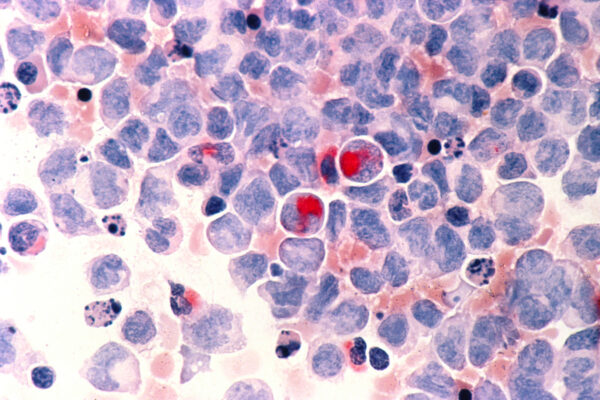
A patient who received a 2seventy Bio cell therapy for pediatric acute myeloid leukemia (AML) has died in a dose-finding study, the first human test of technology designed to overcome a safety limitation of currently available cell therapies.
Seattle Children’s Research Institute, the study sponsor and 2seventy’s research partner, has paused the Phase 1 clinical trial and notified the FDA of the death, the Cambridge, Massachusetts-based company said Wednesday. An investigation is underway to determine whether the death was related to the experimental therapy, SC-DARIC33.

With the Rise of AI, What IP Disputes in Healthcare Are Likely to Emerge?
Munck Wilson Mandala Partner Greg Howison shared his perspective on some of the legal ramifications around AI, IP, connected devices and the data they generate, in response to emailed questions.
2seventy aims to overcome some of the challenges of CAR T-treatments, therapies made by engineering a patient’s T cells to seek out a target on cancer cells. While these personalized cell therapies have found success treating some blood cancers, they are difficult to use safely in AML. CD33, the cancer protein that is a target of these therapies, is also found on healthy cells, which means an AML cell therapy brings toxic effects that extend beyond the tumors.
SC-DARIC33 employs 2seventy’s DARIC technology, which the company describes as a pharmacological “on-off switch” that reversibly regulates the activity of the CAR T cell. The T cell becomes active only in the presence of another drug, rapamycin. This oral small molecule is an old drug used as an immunosuppressant. In tandem with the 2seventy cell therapy, it is dosed at levels that do not suppress the immune system. Instead, this drug has the effect of turning the cell therapy on. Withdrawing rapamycin turns the cell therapy off. According to 2seventy, this on/off capability allows for periods off of active treatment, permitting myeloid cell recovery.
2seventy is developing SC-DARIC33 for children and young adults whose AML has relapsed or has not responded to earlier treatments. Last month, data reported during the annual meeting American Society of Gene & Cell Therapy showed that the first dose level administered to three patients was well tolerated with no signs of dose-limiting toxicities.
The death reported Wednesday occurred in the first patient treated with the second dose level. 2seventy released few details, other than to say the serious adverse event (SAE) was classified as Grade 5, the most severe level.
“Importantly, I’d like to offer that our thoughts are with the family during this time,” 2 Seventy Chief Medical Officer Steve Bernstein said in a prepared statement. “The safety of every patient who participates in our studies or is treated with our therapies is the utmost priority for us, and we are in communication with FDA while we assess the data surrounding this SAE, and the potential next steps for the study.”
2seventy is comprised of the oncology programs of Bluebird Bio. In 2021, Bluebird spun out that business as a separate, publicly traded company while keeping its focus on therapies for genetic diseases. 2seventy already has one approved product, the multiple myeloma CAR T-therapy Abecma, which is being commercialized in partnership with Bristol Myers Squibb.
Public domain image from the National Cancer Institute














